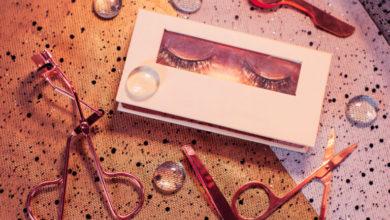Hard Water Issues in the Dishwasher and How to Fix Them

Living with hard water is a problem that millions of people face on a daily basis. Hard water runs through the taps in many geographical areas and cities throughout the United States, and it’s a problem that householders must deal with on their own. When you notice ‘water spots’ on everything from drinking glasses to shower walls and everything in between, you know you’re dealing with hard water. Worst of all, you’ll know you have hard water when your dishwasher stops working properly.
What is the definition of hard water?
Hard water contains minerals such as calcium and magnesium, which leave a chalky deposit on anything it comes into contact with. It is used in homes throughout whole areas, and the minerals that make the water ‘hard’ are typically found in the soil and are a normal component of the local water table. It may be found in both tap and well water. The amount of these minerals dissolved in the water that passes through your taps determines the hardness of your water.
Hard water minerals are not hazardous to your health, but they may cause havoc with your pipes, water-running appliances, and your home’s clean look. When consumers notice water spots, often known as’scale’ in the plumbing business, they know they have hard water. You may also deal with water stains. But you know your dishwasher has gone too far when it not only leaves stains, but also leaves your dishes unclean after the cycle is over.
So today, we’re going to talk about how hard water may harm your dishwasher and how you can fix it at home.
Dishes with Water Spots or Dishes with Cloudy Dishes
The most basic dishwasher for hard water issue is that your dishes are clean, but they never look clean due to chalky white stains on them. Water spots or cloudiness may go so far as to make your regular dishes appear hazy and feel chalky when you touch them. It’s most noticeable on clear drinking glasses, but water spots or cloudiness can go so far as to make your regular dishes look cloudy and feel chalky when you touch them.
Fortunately, the answers to these issues are straightforward.
Fill up on Rinse Aid as a solution.
Load up with rinse aid if your hard water is controllable (spots but not complete dish coating). If your dishwasher includes a rinse aid dispenser, make sure it’s full and topped up on a regular basis. If it doesn’t, add a splash of rinse aid (or white vinegar if you’re trying to save money) to each load.
Use a hard water detergent as a solution.
Hard water has the odd and horrible consequence of making it harder for soap to foam, decreasing the efficacy of whatever detergent you use. Look for a dishwasher detergent that is designed to operate in hard water or start adding additional detergent to your dishwasher to help it get the job done.
Inside Dishwasher, Chalky Residue
If the dishwasher is getting scale-coated, you’ve got a serious issue on your hands. A dishwasher that can’t keep itself clean isn’t going to keep your dishes clean, and scale build-up is more hazardous than you may imagine. That chalky residue may block your dishwasher’s components and cause them to break down. As a result, it’s preferable to have the scale-out done as soon as possible before it becomes an issue.
Solution: Fill the dishwasher with vinegar and run it empty.
On a case-by-case basis, white vinegar is the greatest method to combat hard water. The acid in the vinegar dissolves the chalky scale, allowing it to be washed away with hot water. You don’t have to squat and scrape the whole inside of your dishwasher to clean it. Simply put a bowl of vinegar upright in your dishwasher’stop tray and run it hot for one empty cycle.
This technique may also be used as a rinse assist, particularly if your dishes are scale-coated rather than simply spotty.
Dishes aren’t being washed
However, you know you have a serious issue when your dishes continue to come out with food on them. This isn’t a direct result of the hard water, but rather the long-term harm it causes to your dishwasher. As previously stated, the scale that forms on the components may create blockages and even corrosive damage to the elements of your dishwasher. This, of course, prevents the dishwasher from cleaning and, over time, kills the device or its components.
Wipe the arms of the sprayer with vinegar as a solution.
The most probable cause of issue is scale development because it blocked the little pore in your sprayer arms. As this common issue comes across with your sprinklers or showerhead while using hard water. Vinegar, once again, is the answer. Wipe clean your sprayer arms with a towel soaked in white vinegar. Scrub at the nozzle openings until the scale is gone, bracing the arm so it doesn’t shake. Then, to get any hidden or hard-to-reach accumulation elsewhere, run the dishwasher empty with vinegar.
Vinegar is used to clean the under-components.
Use your vinegar-rag to clean whatever part of the dishwasher you can reach right now. To lessen the damage caused by continuous harsh water, scrub anything you can find with vinegar. Examine everything that looks murky or as though it could be harmed by the contents of your tap water.
Look for signs of component damage as a solution.
Examine the interior of your dishwasher for indications of damage or obstruction. Scrub it with vinegar if it shows indications of scaling. Look for indications of rust, which may indicate that a component is going to break or has already broken.
Dishwasher Components Showing Signs of Rust
Because some of those chalky particles are really salts, hard water promotes rust and corrosion in metal components. When a metal is exposed to salt for an extended period of time, particularly salty water, it will rust or corrode, depending on the kind of metal. It’s terrible news if you see rust or corrosion.
Replacement of Damaged Parts is the best solution.
Any rusted dishwasher parts will need to be replaced. It has already suffered structural damage, and if it hasn’t already failed, it will most likely fail soon or gradually lose functionality over time. Make preparations to purchase new components , and determine whether you’ll replace them yourself or hire a service expert to perform the work for you.
Install a water softener as a solution.
If your dishwasher is exhibiting symptoms of hard water damage, it indicates one of two things. First, even by area norms, your water is exceptionally hard. Second, you should think about getting a water softener. Water softener devices, whether localised or whole-house, remove minerals from the water and transform it to soft, mineral-free water.
This is not just beneficial for your dishwasher; it may also save your washing machine, refrigerator, sinks, showers, and sprinklers from the same destiny. Not to mention the necessity to clean wet stains off of every surface in the home on a regular basis.
Dishwasher problems are often technical, but they may also be caused by something as apparently innocuous as your tap water.
For More Articles: Visitpick.com



